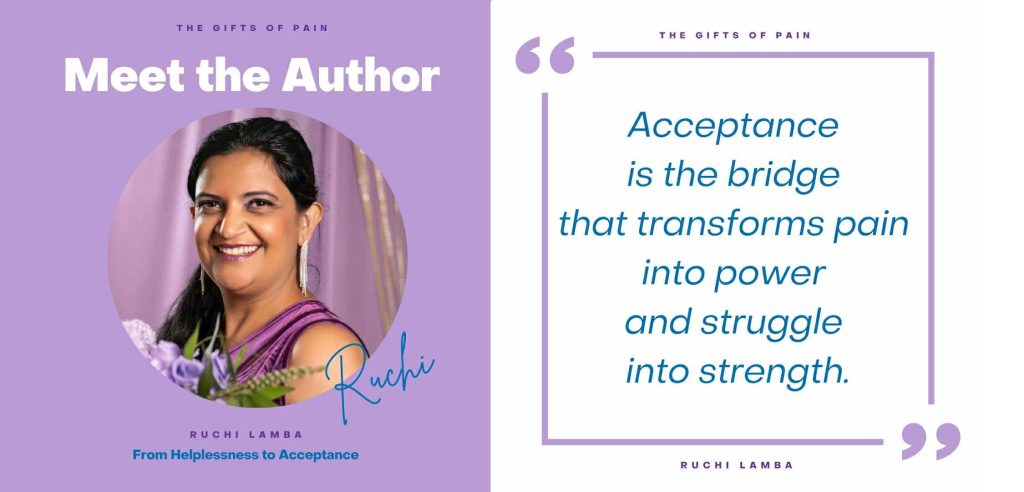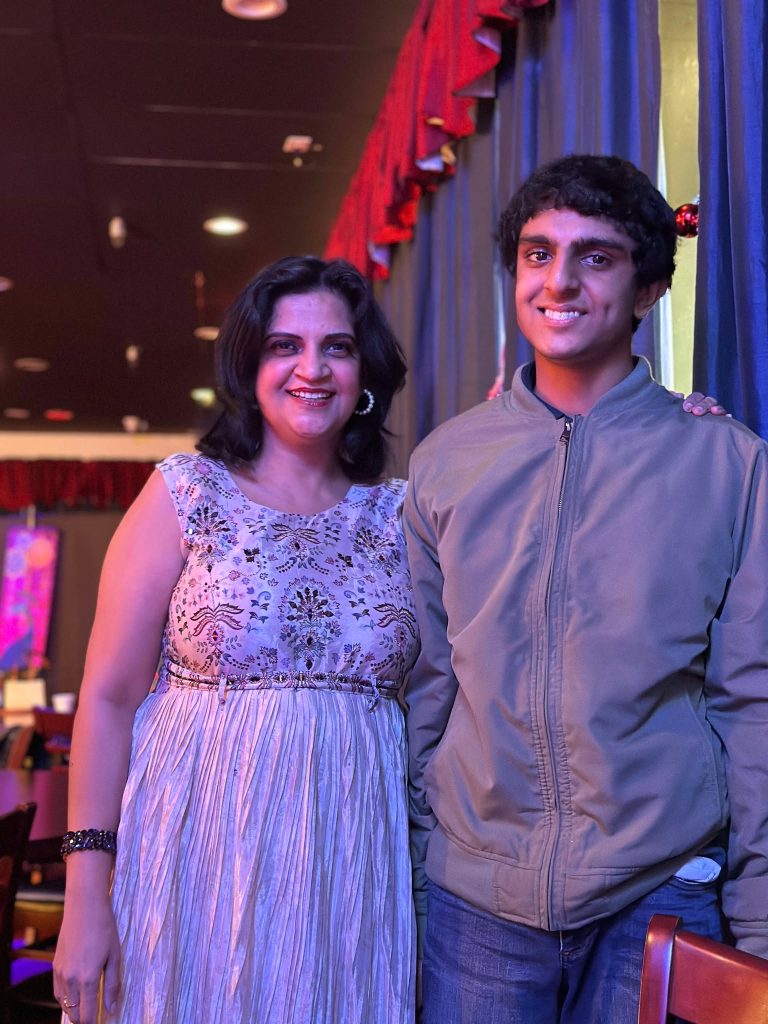Ruchi Lamba’s journey is one of transformation—from helplessness to acceptance, from struggle to strength. Her story begins with a moment that shattered her world and set her on a path of self-discovery and resilience.

“I still remember the moment my world cracked open,” Ruchi reflects. “My son’s teacher had called me to discuss his progress—or lack thereof. Her words were calm but devastating: ‘He may never learn to read.’ My heart sank as my hopes for his future unraveled. Autism had already reshaped my expectations, but this felt final.”
For Ruchi, these words were not just a diagnosis; they were a reminder that the future she had envisioned for her son—full of graduations, friendships, and independence—seemed impossibly distant. She had imagined him navigating a “normal” life, with all the milestones we take for granted. But now, those dreams appeared out of reach.
At first, Ruchi resisted the reality of her son’s condition. She threw herself into every therapy, program, and treatment that she could find, desperately trying to “fix” what seemed broken. “I became a relentless problem solver,” she explains. “But as weeks turned into years, the fight drained me. Every setback felt personal, every failed attempt a reflection of my inadequacy as a parent. I felt defeated, exhausted, and alone.”

It was during these difficult years that Ruchi reached her breaking point. The struggle, she realized, wasn’t just affecting her—it was also impacting her son. “He wasn’t broken—so why was I trying to fix him?” This question marked the beginning of her journey toward resilient acceptance.
Resilient acceptance, she discovered, was not about giving up. It wasn’t about surrendering or resigning herself to the situation. Instead, it was about seeing her son for who he truly was, not who she had hoped he would become. “Acceptance didn’t mean letting go of hope,” Ruchi says. “But it did mean letting go of control.”
In this new mindset, Ruchi began to observe her son through a different lens. She started noticing the things that brought him joy—simple moments of connection and discovery. Cooking became one of their shared activities. Measuring ingredients, tasting spices, and experimenting with recipes became a ritual that brought them closer. And in these moments, Ruchi saw her son’s strengths—his patience, his precision, and his enthusiasm for small victories.
“For the first time in years, I didn’t feel helpless,” she says. “I felt connected.”
This shift in perspective didn’t just transform Ruchi’s relationship with her son—it transformed her life as a whole. As she embraced acceptance in her role as a mother, she began applying it to other areas of her life. “When I stopped fighting the frustration of being unemployed, a job that paid double my previous salary appeared. When I embraced the intimacy of teaching small dance classes, my school grew into a thriving community of over 100 students,” she shares.
The key lesson was clear: acceptance is not weakness—it is strength.
Ruchi’s decision to write about her journey was a way of processing the many lessons she had learned along the way. She knows all too well how isolating life’s struggles can feel. “When you’re in the thick of it, it’s easy to believe you’re the only one falling apart while the world seems to thrive around you. But I’ve learned that pain is universal; what matters is how we respond to it.”
Her story is a reminder to others, especially parents and caregivers facing challenges, that they are not alone. “Acceptance doesn’t mean settling for less. It means finding power in the present moment and building from there,” Ruchi explains. “It’s about seeing the beauty in what is, even when it doesn’t match what we imagined.”
Through it all, Ruchi’s son continues to be her greatest teacher. His resilience, his patience, and his joy in the small things are reminders that life doesn’t need to be perfect to be beautiful. “His laughter is a constant reminder that life doesn’t have to be perfect to be beautiful,” Ruchi says with a smile.
Although the path is still challenging, Ruchi now walks it with purpose and gratitude. “This chapter is more than just a reflection; it’s a call to action,” she says. “I hope it inspires readers to shift their perspective, to stop resisting life’s uncontrollable challenges, and instead embrace them with open hearts and open minds.”
Ruchi’s journey has taught her that acceptance is not the end of the journey—it’s the beginning. In the end, the lesson is simple yet profound: acceptance is the key to transforming pain into power and struggle into strength. And in that transformation, we find not only clarity but also peace.
As Ruchi puts it, “The struggle is not over, but I now walk this path with a deep sense of purpose, and I am grateful for every small victory along the way.”
Ruchi Lamba’s story is a testament to the power of acceptance and the resilience of the human spirit. Her journey from helplessness to acceptance is not just a personal victory—it’s an inspiration to us all.








